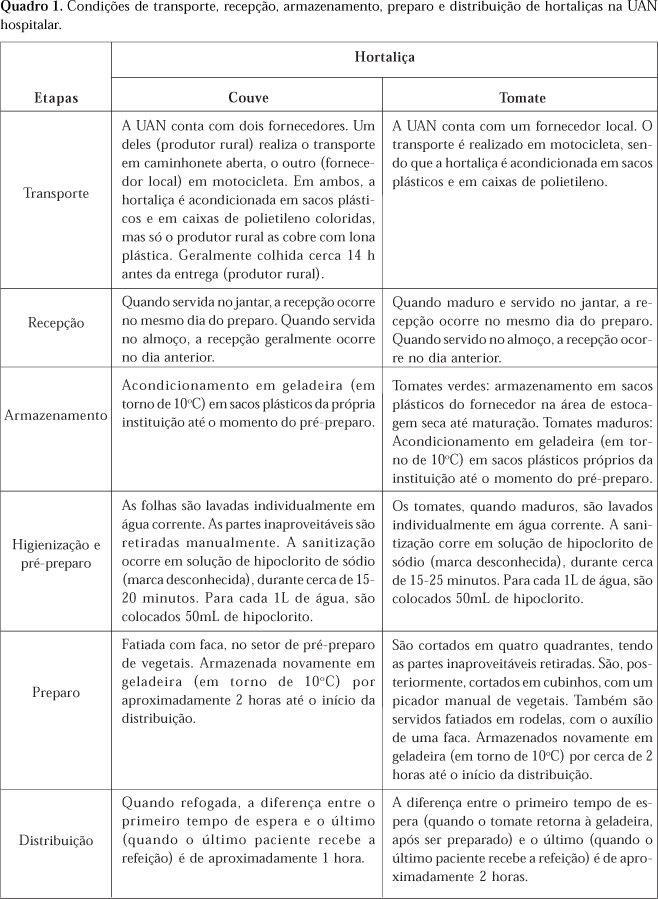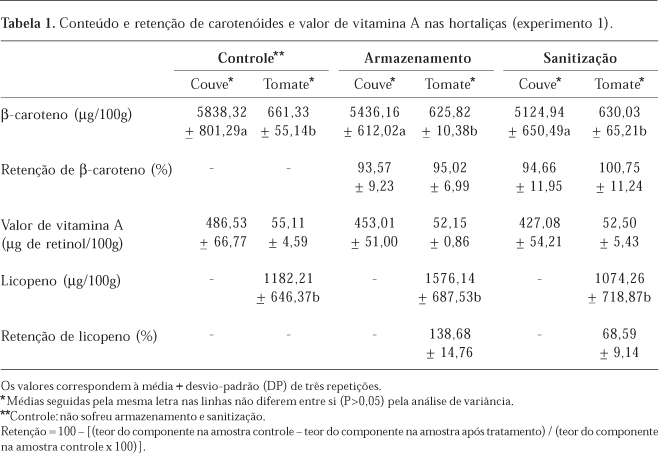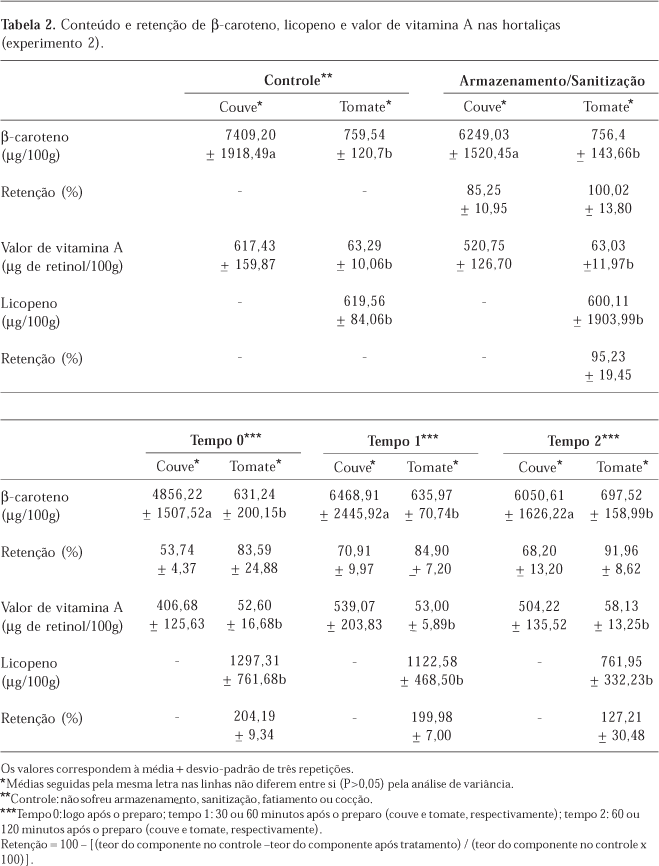The aim of this study was to assess the handling procedures of kale and tomatoes in a hospital foodservice (HFS) in order to control loss of β-carotene and licopene. The adopted measures, up to then not used by the HFS, were: 24-h storage under refrigeration (10°C), hygienizing for 15 min and distribution immediately after preparation. Vegetable samples were collected after reception and after each stage of manipulation in the HFS. The samples were analyzed using high performance liquid chromatography (HPLC) with a mobile phase of methanol, ethyl acetate and acetonitrile (50:40:10). ANOVA (α = 0.05) was used to detect significant differences. No significant differences in the content of the components were found between the different stages of manipulation but there was an important decrease in the retention rates. In kale a retention rate of 68.2% for β-carotene was verified 60 minutes after preparation whereas in tomatoes 91.96% of this compound were preserved for 120 minutes after preparation. No important decrease was observed in the retention of licopene. The high retention rates showed that the evaluated procedures contributed to control the loss of carentoids in vegetables and therefore these measures should be adopted in other HFS.
Beta-carotene; Licopene; Kale; Tomato; HPLC; Hospital foodservice





